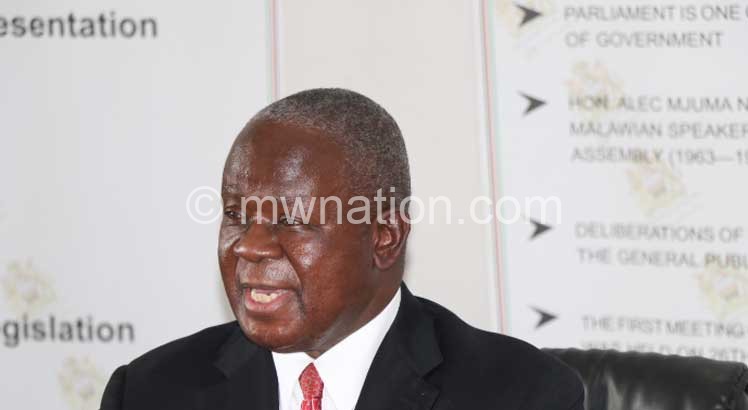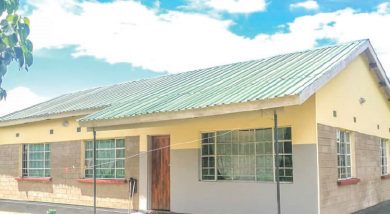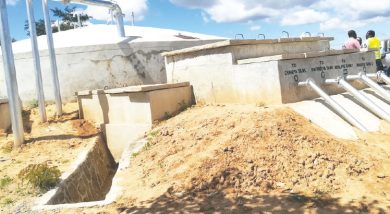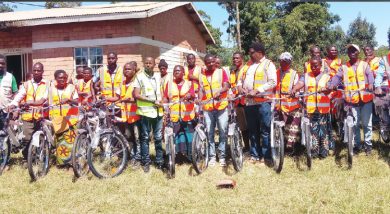EU dangles aid carrot
The European Union (EU) says it is ready to resume direct budgetary support to Malawi if Lilongwe can demonstrate the will to fight corruption.
In a written response to questions from The Nation, the Head of EU’s delegation to Malawi Rune Skinnebach said it is open to the idea of general budget support resumption.
The silver lining comes as the country battles a fiscal squeeze amid rising public debt currently hovering around K4 trillion; dwindling revenue on the back of a failing private sector and pangs of Covid-19 are gnawing at households and the economy at large.
Skinnebach said: “We would be pleased if this modality could be (resumed), and yes, it is being considered, but it requires that eligibility criteria, namely public finance management related criteria, are fulfilled.”

Bringing back general budget support is one of President Lazarus Chakwera’s broader strategy of shoring up Malawi’s fiscal envelope.
The administration is also pushing for debt relief and has said it is committed to tightening public finance management to save resources for ploughing back into the economy.
The EU’s softening stance after initially ruling out direct aid could send strong signals to both bilateral and multilateral donors that Malawi could be ready for support.
But Lilongwe needs an economic programme with the International Monetary Fund (IMF) to boost donor confidence.
The EU suspended direct budgetary support due to governance concerns, chief among them, fraud and corruption that climaxed in 2013 when some K24 billion taxpayer funds were fleeced from State coffers within six months.
The EU had previously rejected calls for resumption, citing fears that public finance management systems were not robust enough.
The EU sentiments come on the back of an approval
in this month of 352 million euros (about K352 billion) for the Multi-Annual Indicative Programme for Malawi for three years from 2021 to 2024.
The support is earmarked towards supporting green and resilient economic transformation, democratic and economic governance and human development and social inclusion, among others.
With debt levels chief among the concerns, The Nation further asked the EU envoy on whether the EU could be in a position to help Malawi tackle its debt crisis.
Skinnebach was quick to point that the EU—through the IMF— was supporting a debt relief mechanism.
“All of the EU’s development cooperation with Malawi is in the form of grants and not loans. Nevertheless, the EU supports the IMF’s Catastrophe Containment and Relief Trust [CCRT].
“The CCRT allows the IMF to provide grants and debt relief and Malawi is benefiting from this mechanism,” he said.
Minister of Finance Felix Mlusu was not immediately available for comment.
But in December 2020 together with Minister of Foreign Affairs Minister Titus Mvalo and some senior government officials met the EU, presenting their case on the need for the union to resume budgetary support. Eisenhower Mkaka, Justice
The EU had rebuffed them at the time and also indicated that tackling corruption was one of the issues that needed addressing before resumption of budgetary support.
Reacting to the development yesterday, Malawi University of Business and Applied Sciences associate professor of economics Betchani Tchereni said the country badly needs an injection of direct budgetary support due to its economic woes.
“We obviously are below par in terms of generation of resources to support budgetary operations both for ORT [Other Recurrent Transactions ] and development to the extent that we are borrowing heavily to supplement the budgetary requirement. We are also in dire need of foreign currency to support our import appetite, therefore, the importance of any development partner who will come to assist us cannot be overemphasised,” he said.
Malawi lost about 40 percent of its national budget when the EU, World Bank and United Kingdom suspended budget aid in
2014 following the Cashgate scandal.
Meanwhile, the EU delegation and Malawi government officials held talks yesterday in Lilongwe through the Article 8 Political Dialogue mechanism.
Mkaka and Mlusu were among those attending the talks. Skinnebach and the ambassadors of Germany, Ireland, Sweden, Netherlands, Flanders, among others attended the talks on the EU side.
According to a statement released after the meeting, the dialogue addressed a series of topics relating to good governance focusing on corruption, public finance management, public sector reforms, electoral reforms and human rights.
“The two sides also discussed newly approved funding from the EU in the National Indicative Programme for 2021-2027 and the regional and multilateral priorities of Malawi,” reads the statement in part






One Comment